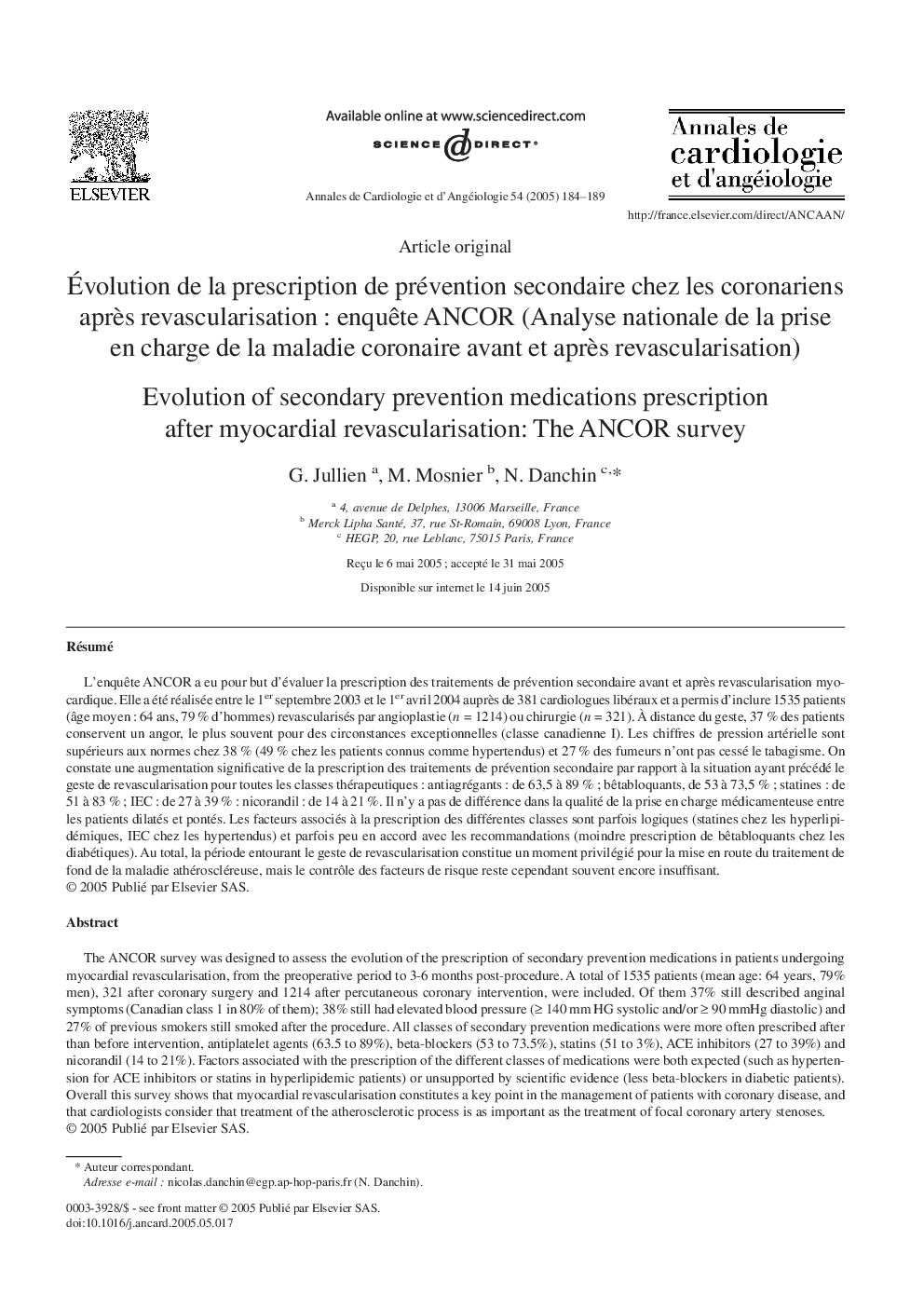| Article ID | Journal | Published Year | Pages | File Type |
|---|---|---|---|---|
| 9157180 | Annales de Cardiologie et d'Angéiologie | 2005 | 6 Pages |
Abstract
The ANCOR survey was designed to assess the evolution of the prescription of secondary prevention medications in patients undergoing myocardial revascularisation, from the preoperative period to 3-6 months post-procedure. A total of 1535 patients (mean age: 64 years, 79% men), 321 after coronary surgery and 1214 after percutaneous coronary intervention, were included. Of them 37% still described anginal symptoms (Canadian class 1 in 80% of them); 38% still had elevated blood pressure (â¥Â 140 mm HG systolic and/or â¥Â 90 mmHg diastolic) and 27% of previous smokers still smoked after the procedure. All classes of secondary prevention medications were more often prescribed after than before intervention, antiplatelet agents (63.5 to 89%), beta-blockers (53 to 73.5%), statins (51 to 3%), ACE inhibitors (27 to 39%) and nicorandil (14 to 21%). Factors associated with the prescription of the different classes of medications were both expected (such as hypertension for ACE inhibitors or statins in hyperlipidemic patients) or unsupported by scientific evidence (less beta-blockers in diabetic patients). Overall this survey shows that myocardial revascularisation constitutes a key point in the management of patients with coronary disease, and that cardiologists consider that treatment of the atherosclerotic process is as important as the treatment of focal coronary artery stenoses.
Keywords
Related Topics
Health Sciences
Medicine and Dentistry
Cardiology and Cardiovascular Medicine
Authors
G. Jullien, M. Mosnier, N. Danchin,
